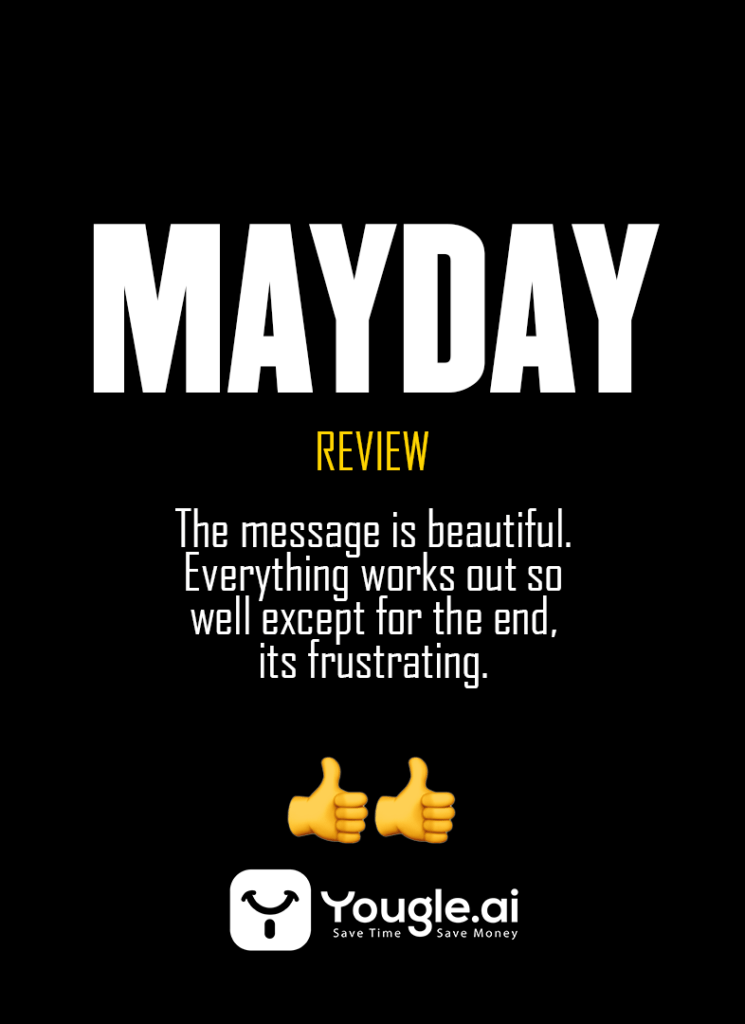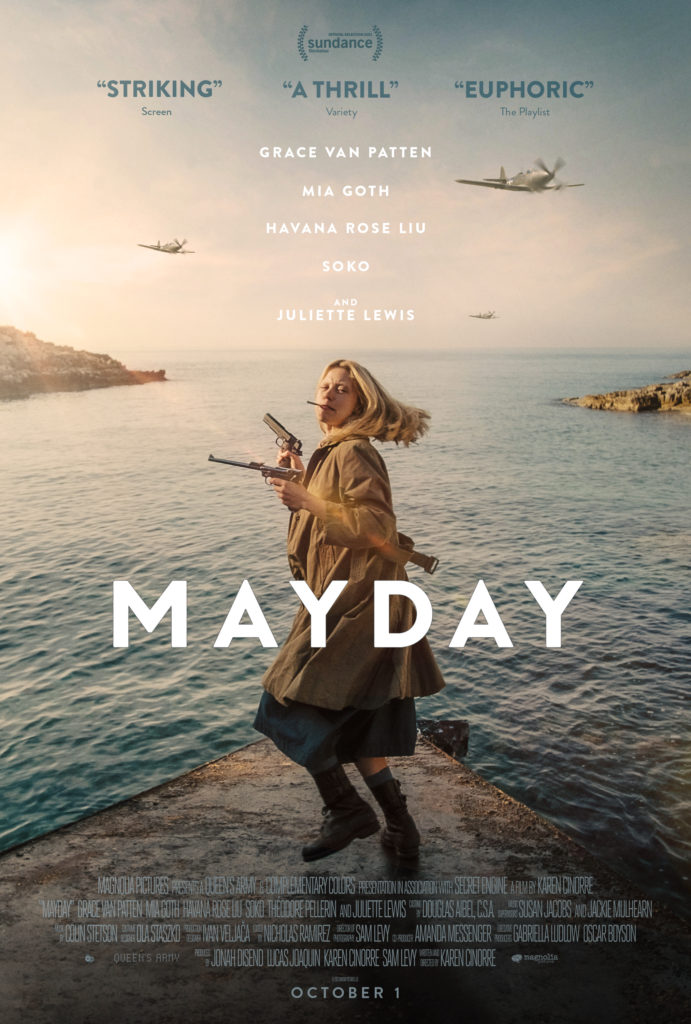One Line Review: The message is beautiful. Everything works out so well except for the end, its frustrating.
Introduction
Mayday is out now in the theaters. If you’re planning to watch it, then this is the most important thing you’ll read today. Let’s start with the review.
Plot Summary and Analysis
A wedding is about to take place. Director Karen Cinorre opts for an artificiality, the clash between the indie and the dreamlike on the outside and the interior marked by a strange temporal determination, with a scenario marked by strong colors and displaced characters. Everything is under construction, as well as the party itself, and the elements are gradually introduced, presenting the main issue of the film: the women’s space, their place in that environment, their freedom of choice, their own body. Mayday is the signal used internationally to call for help by radiotelephony, and the director’s cry and film form to leave this place, or at least try to be.
Classic Story turned into stunning film
Mayday appropriates classic stories to find ways to overcome these traumas suffered for centuries by all women. It makes it the most painful environment, with the most serious of atrocities, the violation of the body. The scene has the power to universalize the feeling of the act, when it makes everyone know exactly what happens without showing any element of violence. That’s enough to show how cruel it is to be a woman in this world. From that refrigerator comes the character we follow throughout the movie, Natasha, on her healing journey.
A cure that comes through solidarity, or through sorority, better said, through meeting other women and other equally difficult and terrible realities like hers. Transported to a fantastic universe, in the style of “ The Wizard of Oz” and “ Alice in Wonderland”, Natasha discovers the existence of another reality. Cinorre, with the help of Vjeran Cengic (art director) and Branka Radonic (scenography), creates an environment that mixes the natural and the playful, making room for the rescue of various legends and references.
Bringing the world war era
Mayday literally turns his back on the world of men when he shares the same physical space with a war and puts, in the first instance, those who come to war and Natasha face to face. In this same environment, she takes refuge, creates her safe oasis, her Never Land of feminism in yet another reference to another children’s classic. From there, they took revenge on those same men at war, where, like the mermaids, they lured their boats so that they drown or, at other times, at those who laughed in unusual musical numbers.
Throughout the process, there is a great appreciation of elements known to be feminine, such as nature itself. The location and the character’s relationship with the environment are highlighted by Sam Levy’s photography and the script makes a point of bringing the importance of this approximation to the dialogues. Another quote from Mayday may be in the name and symbology of the characters, Gertrude, the American writer and poet; Beatriz, the one who leads Dante in the earthly paradise, and Juno, the goddess of all gods. However, among all the references, the work of L. Frank Baum stands out.
From her literary work, that universe of the yellow brick path ruled by women and where men are false leaders, Cinorre takes inspiration from the structure and repetition of characters that reappear in and out of Natasha’s delirium. It is from there that it captures the tone of suspense. Contradictory or not, it is when he lets men take space in the narrative that he starts to get lost. Either when giving way to the villain and the expected revenge of its protagonist or when it gives in to the triviality of conflict and the necessary encounter, without leaving aside the mistaken soundtrack.
Conclusion

The end of Mayday is frustrating for everything the film has built up to that point. Everything works very well as it determines unity and nature as a means of healing, highlighting the importance of the support network as a way of recognizing and facing racism, but it is something that does not remain and ends up being lost in the daze. The message remains, but there is also the emptiness of the inexistence of effectiveness. Dorothy sees the truth and discovers, as she matures, that there is no place like our home. Cinorre’s idea was to show that there is no place like feminism, but her Natasha comes home, and this house, with or without feminism, is still the same, and the refrigerator door still doesn’t open from the inside.


